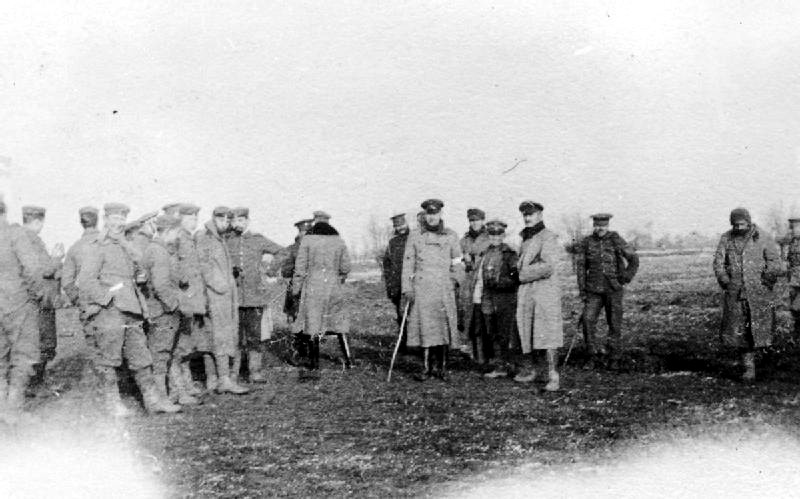Still my favourite scene in the whole show.
What does it mean to serve as a protector of the state? In Game of Thrones, they may have referred to the "realm," but the essential meaning remains: the protectors of community are forever invested in the welfare of its constituents—but not for power, self-interest, or pride. If not established by this post's title, I am discussing "protectors of the realm": extra-state actors who rarely hold political office, but prioritize the polis: the police usually unrecognized by the state.
As some of the folks familiar with this blog may know, I almost dropped out of high school in grade 11. I was fortunate that I discovered a bunch of philosophy books at Chapters that became the basis of much of my future interests, research, and writing. Particularly, I became obsessed with translations of Plato's Republic, reading and rereading sections until I was satisfied and confident in my understanding. I had heard of Platonic guardians prior to reading the Republic itself, but I did not appreciate their exhaustive importance to my context until reading (and rereading) Book VI. This section provided me with the knowledge that shaped much of my future aspirations, particularly to participate in governance when- and wherever possible.
It's 2024, so the alleged guardians of Classical Athens don't hold as much relevance as they would to a relatively isolated city-state with a stable population. However, it's a critical idea for understanding the tension between any general populace and its persistent aristocracy. Plato's philosopher kings exist with and despite the aristocracy, even when the least educated of his contemporaries could be relegated to "Aristocrat, " a term traditionally referring to a typically wealthy member of a minority-elite in a given community, or its "best citizens" in 1500s French communities. In my experience, it's rarely used in 21st century contexts, but its traditional characteristics persist in neologisms of "elite," "privileged," or the "establishment."
I was hesitant to write this post because I feel as though discussing this passage from the Republic has been overdone to clichéd parody. However, it was critical to my own development and motivations. Much of my decision-making after that tumultuous year could be attributed to my aspiration to service, toward Platonic guardianship.
---
Since that time, I have considered myself a civil servant first and an educator or student second. Following the Socratic tradition, education was always a means to a stronger civil society, which follows from the description and purposes of Plato's "guardian class," AKA "philosopher kings."
If you Google this passage, you will find innumerable blog posts referencing rough transliterations of the same essential meaning:
"the reason why truth forced us to admit, not without fear and hesitation, that neither cities nor States nor individuals will ever attain perfection until the small class of philosophers whom we termed useless but not corrupt are providentially compelled, whether they will or not, to take care of the State, and until a like necessity be laid on the State to obey them; or until kings, or if not kings, the sons of kings or princes, are divinely inspired ' d with a true love of true philosophy. That either or both of these alternatives are impossible, I see no reason to affirm: if they were so, we might indeed be justly ridiculed as dreamers and visionaries." (Republic, Book VI)
This custodial role has continued everywhere from Warhammer 40k to Wikipedia Administrators. These often extra-state actors don't always hold political office or enforcement arms of nation-states, but they frequently gravitate to these roles in order to fulfill the broader purpose of "[taking] care of the State."
Ironically, these would-be protectors often find themselves directly confronting the faces of the aristocracy, those who treat the state as a means and not an end in itself. This classical conflict will persist long after we're gone; the aristocracy that exists for itself isn't going anywhere.
Yet, we must persist. Anyone committed to the broader welfare of the state (however the "state" manifests in each respective epoch) must confront the excesses of aristocratic power. Most of the folks predisposed to such advocacy tend to find themselves among the aristocracy, and therefore, they are usually best positioned to police it in each instance.
Bertrand Russell no doubt encountered this same tension, especially given his obvious and self-consciously privileged origin. But, we cannot let ourselves become so consumed with doubt that we cease to check the power of a self-serving elite; in keeping with Russell's critique, we need to challenge their certainty.
---
When Varys approached Eddard, he likely did so from the same justification he held to continue to serve as a eunuch for the state; he was merely continuing to act as a custodian for the realm the best way that he knew how under the circumstances. Although Varys's characterization included some deliberate faults of character, he is probably the closest GoT has to a member of Plato's guardian class. He illustrates many of the conflicts and paradoxes referenced earlier, of an advisor who also polices other aristocrats and of an aristocrat consumed with doubt despite their privilege and relative power.
Hence, Varys's death signaled the final decline of his current system of governance. Once aristocrats who exist purely for the sake of the aristocracy seize power, these protectors of the realm are usually the last barrier to totalitarian control, and therefore the former's primary targets. You know many of their names throughout the ages, but these casualties of established power were all in part chasing the same aspiration. That of personal sacrifice and service.
Drafted, edited, and published live on stream in 2 hours on April 28th, 2024.




